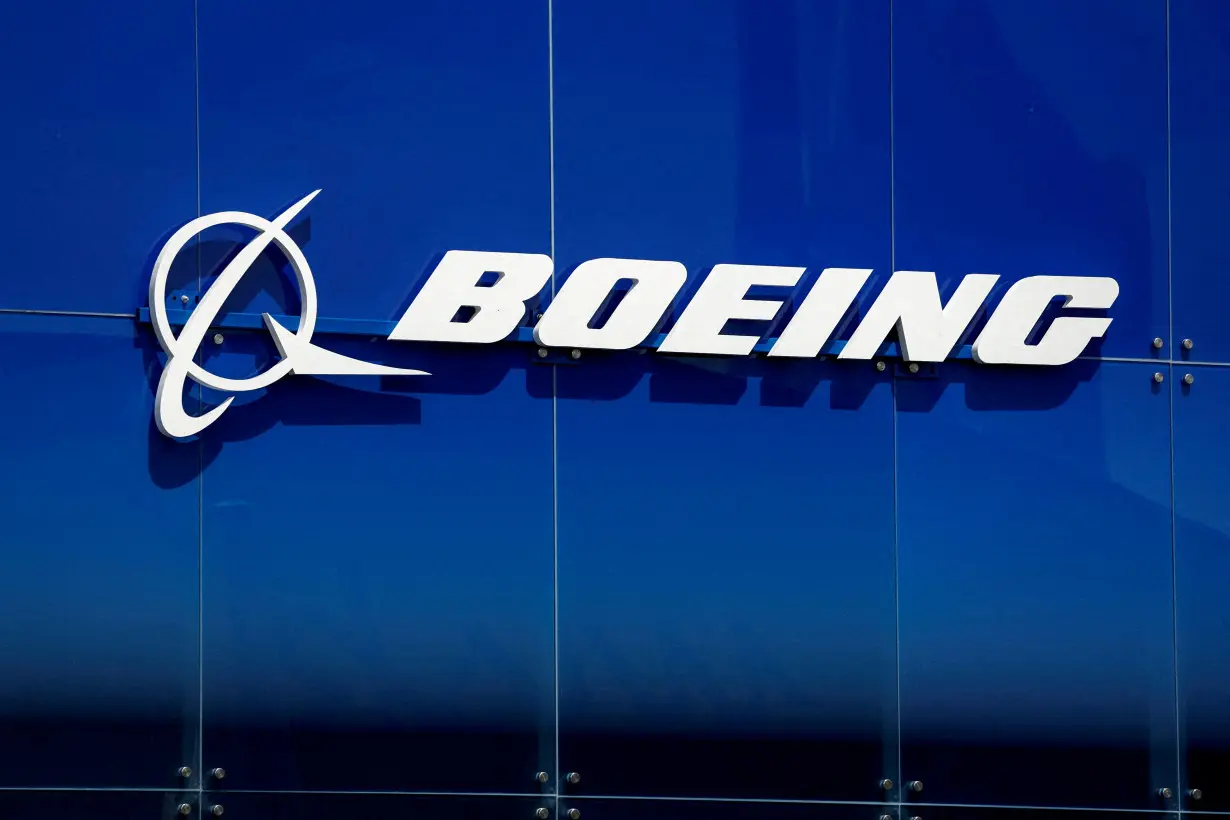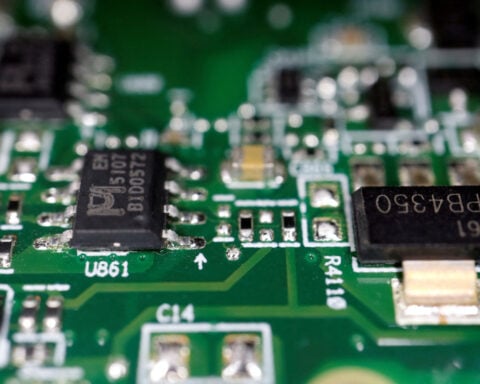By Gabriel Araujo
SAO JOSE DOS CAMPOS, Brazil (Reuters) - Boeing on Tuesday opened a technology and engineering center in Brazil, aiming to expand its global footprint and take advantage of expertise in a country it sees leading sustainable aviation fuel (SAF) production.
The move comes more than three years after it pulled out of a billion-dollar deal to buy the commercial division of local planemaker Embraer. Boeing sees both firms aligned in the goal of developing Brazil's aerospace ecosystem.
"This is very much a logical place for us to invest," said Brendan Nelson, global president responsible for strategy and operations outside the U.S.

Brazil, he said, has highly trained engineers and is well placed to lead the sector's decarbonization efforts. "This investment is a long-term one," Nelson told Reuters.
The airline industry has an ambitious goal of reaching net-zero carbon emissions by 2050, which the executive reiterated the planemaker is committed to, and Boeing says Brazil has the potential to become one of the major global players in the SAF market.
The decarbonization target largely depends on the development and increased production of SAF from renewable resources such as vegetable oils or waste. Brazil is a global leader in biofuels like ethanol.
The firm's new technology center in Sao Jose dos Campos, the town near Sao Paulo where Embraer is headquartered, employs about 500 people, according to Boeing, whose main Brazilian airline customer is Gol.
The planemaker did not say how much it plans to invest in Brazil.
Boeing's expansion in the South American nation led two domestic defense and aerospace industry groups to sue the U.S. company for hiring local talent, a move they see harming Brazil's industry. Both groups have Embraer as a member,
Boeing defended its move, saying its presence will boost Brazil's aerospace ecosystem.
"We're not competing with Embraer for their market. We compete in different markets," said Boeing's Latin America & Caribbean President, Landon Loomis, noting the firms also have shared interests including sustainability and safety.
Embraer's commercial division is focused on regional jets, while Boeing makes larger aircraft.
(Reporting by Gabriel Araujo; Editing by David Gregorio)

 TikTok seeks to reassure U.S. employees ahead of Jan. 19 ban deadline
TikTok seeks to reassure U.S. employees ahead of Jan. 19 ban deadline
 US won't seek charges in unarmed Black motorist Ronald Greene's fatal 2019 arrest
US won't seek charges in unarmed Black motorist Ronald Greene's fatal 2019 arrest
 Euro zone households could increase consumption, ECB chief economist says
Euro zone households could increase consumption, ECB chief economist says
 Foreigners sold South Korean equities last month by most since early 2020
Foreigners sold South Korean equities last month by most since early 2020
 Trump and Biden national and homeland security staff will meet Wednesday for threat exercises
Trump and Biden national and homeland security staff will meet Wednesday for threat exercises
 As fires ravage Los Angeles, Tiger Woods isn't sure what will happen with Riviera tournament
As fires ravage Los Angeles, Tiger Woods isn't sure what will happen with Riviera tournament
 Antetokounmpo gets 50th career triple-double as Bucks win 130-115 to end Kings' 7-game win streak
Antetokounmpo gets 50th career triple-double as Bucks win 130-115 to end Kings' 7-game win streak
 No 97 Laura Siegemund upsets Olympic champion Zheng Qinwen at the Australian Open
No 97 Laura Siegemund upsets Olympic champion Zheng Qinwen at the Australian Open








